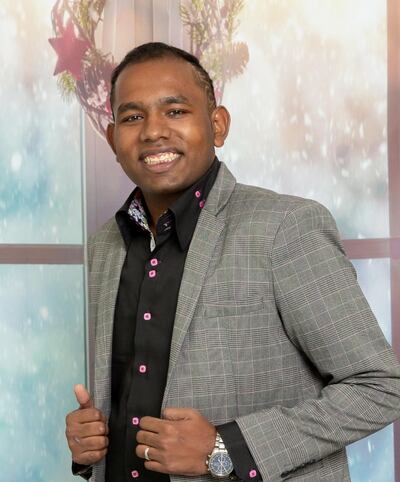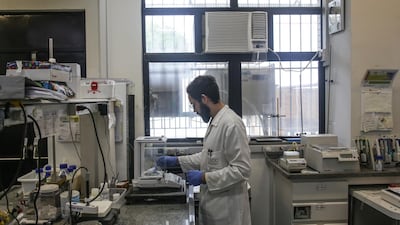UAE university students studying science and engineering are missing out on crucial lab work as they adapt to distance learning.
Many courses require elements of practical study, including final year dentistry students who work with patients.
University campuses in the country are currently closed as a precaution against the coronavirus pandemic.
Online distance learning programmes in the Emirates are due to continue until the end of this academic year.
Mustafa Kaizer Jawadwala, 21, said he was a fourth year aerospace engineering student and was working towards building a drone for a class project.
“Our major projects are being affected as engineering students because we’re more inclined to be making physical products," he said.
"I’m not able to use the lab on campus for assembling or testing my project."
Mr Jawadwala, from Dubai, said his university was still monitoring the work he and other students were doing.
He said staff were committed to ensuring student projects were completed even while distance learning was in place.
“I have finished with the design and analysis [stage] and as of now I am working towards integrating artificial intelligence into the project," Mr Jawadwala said.
"Once the situation is back to normal I will be able to do the assembly and physical testing of the model."
Jeremy Gideon Jayachandran said he was pursuing a Bachelors in technology, specialising in solar and alternate energy.
He is now in his final year and has a major project due, most of which he managed to complete before the UAE’s 'Stay Home’ campaign began.
His research involves a water purification system that harnesses solar power. But with labs no longer available, Mr Jayachandran said simulation software was helping him continue his studies for the time being.

"Our college has understood that we are in the midst of unprecedented times and are making the necessary adjustments," he told The National.
Ahmed Mazin Mohammed, 23, is a dentistry student who is also in his final year.
He said he was meant to be graduating in July and was due to be carrying out a range of simple dental procedures on patients this term.
Now, he said some students had concerns that their missing out on clinical training might affect their studies.

“It is practice, so [it] builds up confidence,” said Mr Mohammed. “Obviously, with no campuses open, the clinical training won’t be there anymore, so it’s affected students this year, especially the fifth year dental students.”
Professor Hossam Hamdy, the chancellor of Gulf Medical University in Ajman, said the disruption had forced the university to come up with new and innovative methods of teaching their students.
He said staff were teaching via virtual patient learning, an online tool where medical students interacted with artificial intelligence programmes instead of real patients.
Prof Hamdy went on to say that dentistry, nursing and physiotherapy students would have their final grades calculated based on how many practical procedures they had carried out prior to distance learning beginning.
“These students, for example, are required to have a certain number of procedures and clinic hours that they’ve done,” he said.
“But for those who are graduating this year, we will assess how many they had up until March and we will review if we can justify those numbers so they can graduate.
“We are taking into consideration that they also have to do a one-year-long internship after graduating in order to get their licence.”


